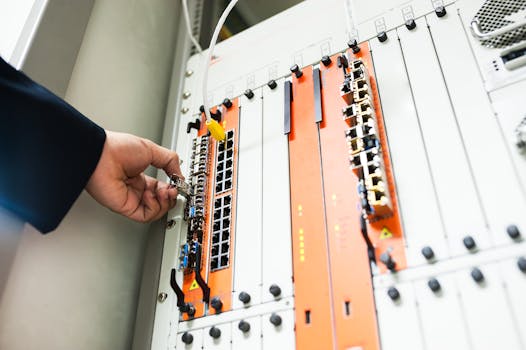
The Future of Telecommunications: Spotlight on Africa’s Fiber Companies
Introduction
The future of telecommunications in Africa is being shaped by the growth of fiber companies, which are investing heavily in network infrastructure to meet the increasing demand for data and internet services. The demand for fiber connectivity is driven by the need for fast and reliable internet services, which are essential for economic growth, education, and healthcare. In this article, we will explore the current state of telecommunications in Africa, the role of fiber companies, and the future of the industry.
The Current State of Telecommunications in Africa
Africa’s telecommunications industry has experienced significant growth over the past decade, driven by the increasing demand for mobile and internet services. The number of mobile subscribers in Africa has grown from 650 million in 2010 to over 1.3 billion in 2020, according to a report by GSMA. The continent’s internet penetration rate has also increased, with over 470 million people having access to the internet, which is approximately 40% of the population.
Despite this growth, Africa still lags behind other regions in terms of telecommunications infrastructure. The continent has a low broadband penetration rate, with only 10% of the population having access to fixed broadband services. This has resulted in a significant digital divide, with many areas lacking access to reliable and affordable internet services.
The Role of Fiber Companies in Africa
Fiber companies are playing a crucial role in bridging the digital divide in Africa by investing in network infrastructure. These companies are deploying fiber optic cables, which provide fast and reliable internet services, to meet the increasing demand for data and internet services. Fiber optic cables have a number of advantages over traditional copper cables, including faster speeds, greater reliability, and lower maintenance costs.
One of the leading fiber companies in Africa is Liquid Telecom, which has deployed over 70,000 kilometers of fiber optic cables across the continent. The company has connected over 40 cities and towns, providing internet services to millions of people. Other major fiber companies in Africa include MTN, Vodacom, and Telkom, which are also investing heavily in network infrastructure.
The Future of Telecommunications in Africa
The future of telecommunications in Africa is exciting and promising. The growth of fiber companies is expected to continue, driven by the increasing demand for data and internet services. The deployment of 5G networks, which provide faster speeds and lower latency, is also expected to drive growth in the industry.
In addition, the development of new technologies, such as the Internet of Things (IoT) and artificial intelligence (AI), is expected to create new opportunities for telecommunications companies in Africa. The IoT, which involves the connection of devices to the internet, is expected to drive growth in industries such as healthcare, education, and transportation.
Conclusion
In conclusion, the future of telecommunications in Africa is being shaped by the growth of fiber companies, which are investing heavily in network infrastructure to meet the increasing demand for data and internet services. The deployment of fiber optic cables, the growth of 5G networks, and the development of new technologies are expected to drive growth in the industry and create new opportunities for telecommunications companies in Africa.




